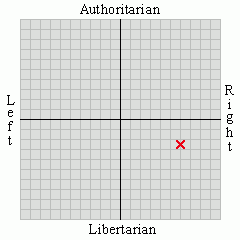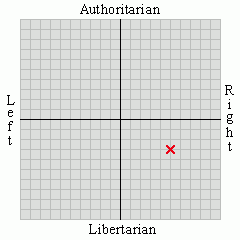I am writing to you to express my deep concern regarding the alarming erosion of our country’s commitment to a model of deliberative democracy, of which the freedom of speech is an inalienable part of fundamental importance. The deliberative model of democracy requires all members of society to be considered as equal and to be granted equal rights of participation in the political processes of the state. International treaties, such as the European Convention of Human Rights, to which, as you are aware, the UK is signatory, defend the plurality of political participation which is both essential for the respect of democratic principles and for the representation of the various interests of a society at the governmental level, as a polity may only be considered democratic if it embodies the twin principles of political equality and popular sovereignty. Therefore, the Home Secretary’s decision to deny a democratically elected legislator from another European Union member state, which is signatory to the same human rights instruments as the UK, the right to enter our country would seem excessive and disproportionate for several reasons.
The Dutch MP, Geert Wilders, was invited by the House of Lords to show his short film, Fitna, which juxtaposes video clips of terrorist sympathisers, atrocities and hatred for the West with verses from the Koran, and compares Islam to Nazism. The Home Office refused him entry on the grounds that he would hypothetically threaten community harmony and public security. However several commentators, both from the UK and overseas, have noted that profoundly anti-Christian Islamists have been granted access to our country to preach their unsavoury opinions. On 11th February 2009, Mr. Wilders was deported from the UK. It is true that Mr Wilders’ opinions may have caused offence to many members of the public, regardless of their religion, however denying his right to free speech has disproportionately silenced public debate. Minority groups, including Muslims, should not be permitted to achieve this effect, even when they are the subject and even when the message being conveyed is offensive. This same principle should also apply equally to other religious groups and their leaders. Furthermore, I believe that the Home Secretary’s refusal has inadvertently been detrimental to the public image of the British Muslim community, as it confirms that she believed Mr Wilders’ presence in the UK would have sparked irrational violence and upheaval or even the siege of the Palace of Westminster by a mob of 10,000 angry Muslims, as warned by Baron Ahmed of Rotherham, who himself has hosted a book launch in the House of Lords for the controversial anti-Semitic writer, Israel Shamir.
According to Mr Philip Rumney, lecturer at Bristol Law School, legislation criminalising the incitement of racial and religious hatred in Britain has greatly restricted the dissemination of racist materials in the public, without having a detrimental effect on the freedom of speech, and may also be responsible for an apparent decrease in the support for organised racist groups, as evidenced by the limited number of British prosecutions. However, the Channel 4 documentary ‘Dispatches’, first broadcast on Monday 15th January 2007 and entitled ‘Undercover Mosque’, reported on preachers in mosques nationwide that actively condemn any degree of integration into British society as well as western values of human rights and tolerance. This Saudi Arabian form of Islam, Wahhabism, disseminates a message of hatred, segregation and the will to dismantle British democracy. Evidently therefore, the legislation enacted to prohibit racial and religious hatred inadequately takes into account the issue of the radicalisation of British mosques.
My concerns are further amplified by the overwhelming sense that the current government is insistent on upholding and enshrining political correctness as a core value to the extent that it has become the status quo and allows the minority to dictate what is acceptable for the majority. Respecting diversity and political correctness is therefore deemed to be more essential than asserting national values of tolerance, the rule of law and human rights. It would therefore seem that minority groups are able to exploit the environment created by the secular and politically correct orientation of our society in order to nurture their radical ideologies. Moreover, it is apparent that there is a lack of political will to address the imbalances of free speech rights and positive discrimination brought about by the reluctance to offend cultural, ethnic or religious minorities. An example of this imbalance occurred on 3rd February 2006 outside of the Danish Embassy in London. It is well documented that the Islamist demonstrators staged a protest inciting murder, hatred and intolerance, yet in spite of this, the police failed to immediately put an end to the protests. The failure to arrest anyone also outraged moderate British Muslims who do not wish to be represented by such illegitimate and uncivilised actions.
Although I do not consider myself to be Islamophobic in any xenophobic sense, I do fear the restrictions effectively being imposed by this particular minority community on the right to free speech. For this reason, I wish to clarify that the intention of this letter is to address the conflict been democracy and theocracy which is raging at present, with particular focus on the harm being caused to free speech. The British people should have been allowed to make their own assessment of Mr. Wilders’ opinions. His speech also could have allowed extreme views to be vented and subsequently diffused. On 19th February 2009, Mr Wilders was allowed into Italy to deliver a speech in Rome. The Italian government, also a signatory to the same international human rights instruments as the UK, chose not to suppress his civil rights. It is therefore necessary to conclude that the British political system has bestowed grievance-bearing minority groups with unacceptable leverage over itself. The European paradigm of states bases its authority over citizens on the rule of law rather than on the placating of minority groups. In a diverse society the only true common denominator shared by all groups is civil rights. Sacrificing the majority’s right to free speech by invoking justifications for a right’s restriction based on hypothetical public order concerns renders our concept of rights utilitarian rather than liberal.
With these issues in mind, how will your Party counter such erosions in our civil liberties and human rights? Can you ensure that your Party will defend rights in a more balanced and proportionate manner than the current government? Does your Party aim to address the radicalisation of mosques when it comes to power? I would very much appreciate hearing your opinion on the matters discussed above.
Thursday, 16 April 2009
Freedom of Expression in the UK - A letter to members of Parliament
Subscribe to:
Post Comments (Atom)



No comments:
Post a Comment